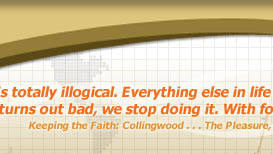The Secret Archives of the Vatican
by Maria Luisa Ambrosini
Overview
FROM THE PUBLISHER
The thrills of mystery and discovery pervade this intimate account of one writer's lengthy encounter with the secret archives of the Vatican, a vast collection of religious and historical documents covering more than a thousand years of history. The book, an outcome of the author's rare chance to visit almost all the archives - "twenty-five miles of shelved documents" - described how this awesome collection of knowledge came into being.
In telling the story of the development of the archives, which were established in their present form by Pope Paul V in 1612 and opened to scholars in 1881, the author provides fascinating glimpses of what they contain. These glimpses make for some of the book's most riveting reading. Brought to life are events that led to such documents as the original report on the trial of Galileo and to papal attacks on Pico della Mirandola. The author penetrates the collection of avvisi, or newsletters, which were gossip columns that began appearing in 1565 and were illicit, anonymous, condemned by everyone, and read by everyone, especially the cardinals. Her look into the papal register - official and personal letters - of Gregory VII (1073-1085) reveals a pope of profound feeling and self-questioning, as well as affection - for Matilda, Countess of Tuscany. Young Beatrice Cenci emerges a tragic heroine, put to death with her brother and stepmother in 1599 by Pope Clement VIII for murdering her father - a sadistic, violent, and repulsive man. The series of records that deal mainly with marriage annulments show "questions more searching than a psychiatrist would venture."
Of particular interest is the chapter on the saints and the process of canonization, which guides the reader through one of the most inaccessible archives of the church - the records of saints' lives in their most intimate detail, the result of long investigations of documents, witnesses, and evidence.
My thoughts
I'm putting this summary on-line even before I finish the book as I can't wait to get it listed!! I'm enjoying it SO much!
I'm not Catholic but I have a strong interest in Catholicism, thus I enjoy reading about Catholic practices, faith and history. The title of the book, specifically the mention of the word 'secret', may lead one to believe that this the low down dirt on the Vatican -- the nasty little hidden secrets in a tell-all book! Far be it from the truth! The author's note in the front of the book explains it so well: I began this work with a certain boldness, and I am finishing it with a sense of humility, realizing the greatness of the task. At least I can say that it has been done with love.
Think of the Secret Archives as an extension of the Vatican Library, open to the public with permission from the prefects and in some cases, from the Pope himself. There are 25 miles of shelved documents dating back to, for instance, the ninth century! The author puts the records in chronological order for us and shares the highlights of each period that's represented. No, it's not all sunshine and roses; there are some terrible things that happened and the author writes about them. But each story is told with historical professionalism with respect to the church. They're exciting stories - murder, lust, drama, love, devotion, faith - but they're not gruesome stories and they're not told to injure the Roman Catholic Church.
This is a difficult book for me to read because it's got a lot of big words that I've never heard before (see below), however it's so riveting I cannot put it down! I highly recommend it!
Favorite Passage
The papacy had hoped for too much from its alliance with the empire. Charlemagne's casual marriages had produced no offspring that bred true. His sons and grandsons, some pious and some profligate, spent their energies in quarreling with each other, and Europe was upset by the love affairs of the grandchildren of Charlemagne.
The papacy and the empire were interdependent but antagonistic, like rival siblings quarreling, like eclipsing binaries wobbling around each other. The Vikings were attacking from the north, and the Saracens from the sea that was no longer mare nostrum. It was a time when, for practical security, people relied less on either emperor or pope than on good walls and a good water supply.
Then came the dark age of the papacy, the time of the iron popes, when the Chair of Peter was controlled by warring Roman families and by the demands of the Roman crowds, the time of the great popes and their conflicts with the emperors, and the time of revolution when Rome rose against the papacy, carrying on its red-and-gold banners the SPQR of the Senate and people of Rome.
In this age of disorder most of the papal archives were to disappear, perhaps in the Norman and Saracen invasions, perhaps by political theft, perhaps by intentional destruction in times of schism or by the unintentional destruction of war. From this period between Charlemagne's time and that of Innocent III in the late twelfth century, only a few important documents have survived -- the registers of John VIII and Gregory VII, and the diploma of Otto I. The registers of the many other popes have vanished, and with them the rest of their official documentation.







